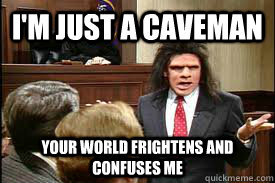Thanks for the links. So technically, every single short film made
in the US is breaking labor laws.
I wonder if anyone has ever agreed to work on a movie for no pay,
no points, no deferment, and then sued the "employer". I wonder
if anyone has won a lawsuit like that. I wonder if offering "points"
or 100% deferred pay would stop a lawsuit loss.
This brings up so may examples; technically, the world wide "48
Hour Film Project" is illegal in the U.S.
Not my shorts, I gave my crew points, making them partners. Which was fine, except one actually made a small profit and I hadn't build a system for getting people their money. I had to figure everyones pay then ask them where to send the checks. Which was probably more effort then the ~$15 each of the crew got.
I'm sure it doesn't happen often, its probably happened.
I believe that contests have different legal requirements. I've never run one, I don't know.
Chris, please stop.
That much is quite clear. Don't pick and choose statutes to quote because they can be absolutely meaningless without case law and other relevant sections such as:
29 U.S. Code § 213 - Exemptions
Now you're gonna ask how the hell does that apply? Well, that's case law in that
professional capacity has been defined as including ACTORS (and crew) and is known as the "Creative Professional Exemption." See how the actual words of a statute can tell you nothing.
And there are multiple other legal exemptions (perfectly fine for a lawyer to use multiple approaches to make their case.) I already cited the independent contractor argument where cast and crew sign a contract in exchange for copy and credit.
Also copy and credit also has monetary value so you probably aren't violating minimum wage rules anyway. (Example: I commission you to make a painting for $10, you spend 50 hours doing it, no one will make me pay 50 hrs x min. wage for this painting.)
Not to mention using the smell test, i.e. common sense. If this were soooo illegal why hasn't there been news reports of producers getting hauled off to jail?
So folks, you are perfectly fine using unpaid actors.
Seeing as how you where encouraging people to commit insurance fraud in the locations thread pardon me if I don't take you word as gospel.
Yes case law will show what you can be prosecuted for, but its always best to generally not brake laws.
Lets start with Professional Capacity, straight from the Department of Labor ruling on the subject:
"Sec. 541.300 General rule for professional employees.
(a) The term ``employee employed in a bona fide professional
capacity'' in section 13(a)(1) of the Act shall mean any employee:
(1) Compensated on a salary or fee basis at a rate of not less than
$455 per week (or $380 per week, if employed in American Samoa by
employers other than the Federal Government), exclusive of board,
lodging, or other facilities; and
(2) Whose primary duty is the performance of work:
(i) Requiring knowledge of an advanced type in a field of science
or learning customarily acquired by a prolonged course of specialized
intellectual instruction; or
(ii) Requiring invention, imagination, originality or talent in a
recognized field of artistic or creative endeavor.
(b) The term ``salary basis'' is defined at Sec. 541.602; ``fee
basis'' is defined at Sec. 541.605; ``board, lodging or other
facilities'' is defined at Sec. 541.606; and ``primary duty'' is
defined at Sec. 541.700."
Source:
http://www.dol.gov/whd/overtime/regulations_final.htm
So as you can see per 13(a)(1)(1) you have to pay them $455 per week to qualify.
As for the value of copy and credit, you would have to get them to stipulate it in a contact or release, because if they contest it in court your are in for a world of pain. And as you can see if they are 'professional capacity' workers their pay is "exclusive of board,
lodging, or other facilities" so you would still be on the hook.
Because no part of your nopay short is news worthy.
What is the objection to giving your actors and crew the minimum points required to make them equity partners in the production? On the off chance your short makes a profit, shouldn't they see some for their hard work?



